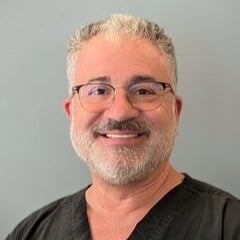If there were only one number to gauge your overall health, fitness, and longevity, it would be...
What is an Effective Treatment for Someone After a Stroke?

Strokes, also known as a "brain attacks," are a leading cause of disability and death worldwide, impacting victims speech and motor function. Recovery can be a long journey, calling for various therapies to assist the healing process.
While diagnosis and acute treatment of a stroke has improved substantially over the last 20 years, with clot busting drugs and direct clot removal in the brain now possible, if stroke symptoms do persist, conventional treatments, such as physical therapy, speech, and occupational therapy, are often not enough. As a result, the recovery process can be a long journey, filled with frustrating lows and encouraging highs.
New and exciting research, however, has shown the potential of hyperbaric oxygen therapy (HBOT) to be a potent and non-invasive stroke recovery technology.
The brain is the most critical organ in the human body.
It is the center of the nervous system, controlling your reflexes, memory, speech, sensation, motor skills, and thousands of other body functions. In order for the brain to function properly, it requires a substantial amount of blood to provide the necessary oxygen and nutrients. A stroke, sometimes referred to as a “brain attack,” suddenly disrupts this blood flow to the brain.
According to the nonprofit American Stroke Association, someone in the United States suffers a stroke every 40 seconds. Hemorrhagic strokes are caused by ruptured blood vessels, while ischemic strokes, which occur more often, are most often caused by blood clots.
A stroke can lead to physical, cognitive, and emotional health issues, including:
- Blurred vision
- Weakness or numbness
- Lack of balance
- Trouble speaking and swallowing
- Memory loss
- Inability to focus
- Mood swings
- Constant headaches
- Paralysis on one side of the body
- Poor judgment
- Impairment of motor skills
- Seizures
- Difficulty sleeping
HBOT FOR THOSE WHO'VE SUFFERED A STROKE HEALS THE BRAIN USING THE POWER OF PRESSURIZED OXYGEN.
When someone has a stroke, there is a chance that he or she may suffer brain damage. The key is both to improve oxygen delivery as soon as possible and to also create an environment in the brain where healing can happen.
HIGHER OXYGEN LEVELS IN THE BODY MAY IMPROVE YOUR SYMPTOMS BY REGENERATING NERVE CELLS, ENCOURAGING THE CREATION OF NEW BLOOD VESSELS, AND LETTING THE BRAIN HEAL FROM THE INSIDE OUT.
A 2013 study by researchers at Tel Aviv University and published on popular science news website ScienceDaily.com reports positive results among individuals, post-stroke, who have undergone HBOT. After two months, it states, “analysis of brain imaging showed significantly increased neuronal activity” in people while receiving HBOT in comparison “to controlled periods of non-treatment.” As a result, the study continues, some patients experienced “a reversal of paralysis, increased sensation, and renewed use of language.”
A 2014 study published in the journal Interventional Neurology available through the U.S. National Library of Medicine discusses how much of the research on post-stroke patients and HBOT shows the noninvasive therapy improves “cerebral blood flow and promotes microcirculation and collateral circulation of ischemic-induced stroke.” Better blood flow and circulation means that more nutrients and oxygen are being transported throughout the body, which could reduce or eliminate the side effects of a stroke.
Although HBOT is not yet approved by the FDA to treat post-stroke patients, and additional studies should be conducted to learn more about the effectiveness of this alternative treatment, HBOT for stroke recovery shows great promise.
Find out more about what hyperbaric oxygen therapy is and how it could be used to help people recover from a stroke.

Written by Alan Katz, MD, FUHM, FACEP, FAAEM
Dr. Alan Katz, National Medical Director of Hyperbaric Medical Solutions (HMS), is double board certified in Emergency Medicine and Hyperbaric Medicine. He directs clinical operations, education and research initiatives, and the integration of other regenerative medicine therapies....
Read More



